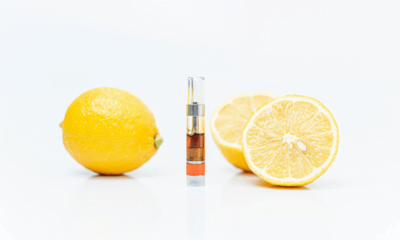A new drug candidate is said to have demonstrated a three to fourfold increase in bioavailability when compared to unmodified CBD.
A clinical-stage biotherapeutics company, PureTech Health, says its oral CBD candidate could expand the therapeutic application of the cannabinoid as a treatment for a range of indications.
The therapeutic candidate, known as LYT-310, is an oral cannabidiol prodrug which can be administered via a capsule. It is said to have shown a three to fourfold increase in bioavailability compared to unmodified CBD in a preclinical model.
Lymphatic-targeting
LYT-310 leverages the company’s trademark Glyph technology. Glyph is a synthetic lymphatic-targeting chemistry platform designed to employ the lymphatic system’s natural lipid absorption and transport process to enable the oral administration of certain therapeutics.
Glyph adds a dietary fat molecule to an existing compound so that the drug is re-routed through the lymphatic system, bypassing the liver and instead moving from the gut into the lymphatic vessels that normally process dietary fats.
This lymphatic-targeting chemistry is designed to allow oral availability of certain drugs that are currently delivered via other means. The aim is to retain the validated efficacy whilst improving safety and tolerability.
In multiple preclinical models, including large animal and non-human primate, LYT-310 is said to have demonstrated a three to fourfold increase in oral exposure when compared to unmodified CBD in a fasted state. The company says this has the potential to translate into improved safety and reduced side effects.
Lymphatic transport has also been confirmed in preclinical models, with up to 30% of LYT-310 entering the lymphatics, compared to 5% for unmodified CBD – which further supports the novel Glyph mechanism of enhancing bioavailability.

Expanding the therapeutic potential of CBD
To date, only one CBD-based product, Epidyolex, has received regulatory approval in the US and Europe to treat seizures resulting from certain rare conditions, but it requires a large volume of a sesame oil-based formulation which PureTech says limits its use in broader indications and age groups.
According to a statement from the company, LYT-310 is designed to expand the therapeutic application of CBD by enabling oral administration in a capsule, potentially improving safety and reducing gastrointestinal (GI) tract side effects associated with the currently approved CBD-based treatment by reducing GI and liver exposure.
It could also expand the use of CBD into patient populations such as adolescents and adults, where higher doses are required to achieve a therapeutic effect.
Daniel Bonner, PhD, vice president at PureTech Health, said: “The nomination of LYT-310 is an exciting expansion of PureTech’s Glyph technology. The data generated to date with LYT-310 further demonstrate our ability to apply the Glyph technology to an array of molecules to enable or greatly enhance oral bioavailability.
“This approach allows us to unlock the therapeutic potential of a range of molecules with validated efficacy whose development has been limited by first pass metabolism by the liver.”
LYT-310 is the second therapeutic candidate developed from PureTech’s Glyph™ platform to be advanced toward the clinic. It is expected to begin clinical trials in late 2023.
A useful advance?
Reviewing the company announcement, Professor Mike Barnes chair of the UK Cannabis Industry Council, said he was not aware of any other mechanisms which use the lymph system for the absorption of CBD. While it is still in the early stages it appears this could be a ‘useful advance for the field’, he noted.
Home » Industry » New CBD candidate said to boost bioavailability, expanding therapeutic potential

 Science5 months ago
Science5 months ago
 Industry6 months ago
Industry6 months ago
 News5 months ago
News5 months ago
 News6 months ago
News6 months ago
 Health5 months ago
Health5 months ago
 Health3 months ago
Health3 months ago
 Science5 months ago
Science5 months ago
 Cannabis explained5 months ago
Cannabis explained5 months ago











